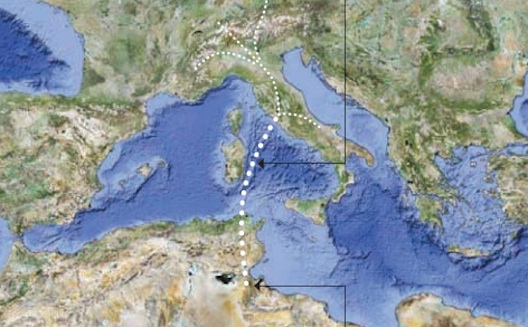6 Ways Tunisia Can Become a Green Energy Leader

 Since the 70’s, Tunisia has managed increasing
unemployment pressures by promoting low value-added manufacturing
sectors such as textiles and auto wires. However, the job
opportunities these industries created have been limited to
low-qualified workforce, a fact that has frustrated highly educated
job seekers and exacerbated the current dramatic unemployment
rate.
Since the 70’s, Tunisia has managed increasing
unemployment pressures by promoting low value-added manufacturing
sectors such as textiles and auto wires. However, the job
opportunities these industries created have been limited to
low-qualified workforce, a fact that has frustrated highly educated
job seekers and exacerbated the current dramatic unemployment
rate.
Tunisia’s first attempt to reverse this situation was to develop
the IT business over the last decade in hopes of becoming the
Bangalore of North Africa. However, results were below
expectations; we actually ended up attracting call centers looking
for cheap labor rather than reputed software developers who could
help unleash “Made-in-Tunisia” innovation potential.
While the new government needs to re-adjust its strategy to boost
nascent Tunisian IT businesses, it also ought to take advantage of
this clean slate to promote new and emerging industries that could
reshape the global economy over the next decades. Renewable energy
must be at the top of the list.
The world is now shifting to renewable energy in order to
generate sustainable and carbon-free energy. Mounting nuclear
threats in Japan coupled with increasing oil prices (above
$100/barrel), as well as the realities of climate change are
pushing several governments to revise their energy policies and opt
for green energy.
According to the United Nation Environment Program (UNEP), the
projected global investments of US$ 630billon in renewable energy
sector would translate into at least 20 million jobs by 2030. In
Europe, the green energy sector could potentially create 2.8
million new jobs and add 1.1% to GDP growth if the EU's 2020
renewable target of 20% is met.
Tunisia should not miss this unique opportunity to follow suit. It needs to swiftly position itself towards encouraging this emerging industry and becoming an important services provider. To do so, several key steps must be taken:
- Establish new engineering schools, universities, and master’s
programs that specialize in renewable energies (mainly solar, wind,
wave and biomass). Hundreds of thousands of well-educated staff
will be required to fill current and future vacancies in the
industry worldwide; Tunisia can work to provide workforce.
- Aim to capture 1% of the projected investment Europe will make
in green industries, by encouraging outsourcing to Tunisia. This
could enable the creation of 30,000 new highly-qualified
positions.
- Set up a specialized cluster (for instance, a green energy
park) that provides various incentives as well as adequate
infrastructures to attract leading European and global companies.
The Spanish model could be useful to emulate; Spain’s commitment to
renewable energy, insisting that it comprises 35% of electricity
generation, has reduced the price of electricity production by
US$6.5 billion, contributed US$11.5 billion to the national GDP,
and was worth US$4.1 billion in exports in 2009.
- Get involved in Desertec,
a €400 billion project that aims to promote the generation of
electricity in the Sahara desert using solar power parks and wind
farms, for transmission to Europe. Despite Tunisia’s relatively
limited solar and wind resources, it could play an instrumental
role in bringing North Africa further into the project, leveraging
the recently approved trans-Mediterranean cable project between
Tunisia and Italy. Nur Energie has already begun this process with
the TuNur project.
- Once global players begin allocating green investment in
Tunisia, in the form of wind or solar farms, plants, and R&D
labs, Tunisia should continue to help local entrepreneurs start
complementary businesses, grasping fresh opportunities all along
the value chain. Tunisia should move quickly to become an early
mover in the space and a net exporter of green energy-related goods
and services.
- Invest in Research & Development in renewable energy. Many public and private agencies and funds from all over the world are providing financial supports to encourage green R&D, as this has been proven to be a high yield business. Tunisia should start in on this as soon as possible, laying the foundation for a solid and effective bridge between engineering universities and the private sector.
The world is irreversibly turning towards green energy, and Tunisia needs a proactive approach to ensure an early integration with this process. We are at a crucial crossroad and we need to act swiftly to put our “green” Tunisia on the world’s green map.
[photo from Nur Energie's Tunisia Solar Power Export Project Report].


